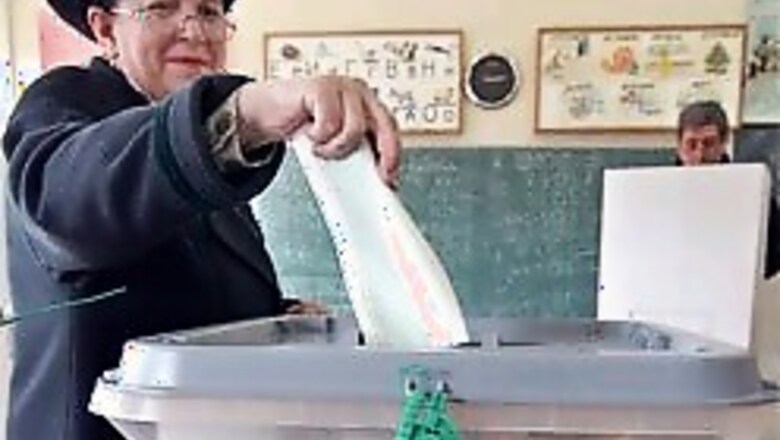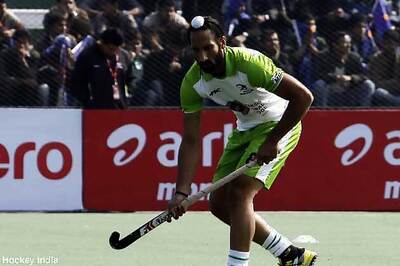
views
Skopje: Macedonians voted in a closely fought general election on Wednesday, hoping to avoid the fraud and intimidation that marred past polls and stay on track for future membership of the European Union.
The ruling Social Democrats face a stiff challenge from the opposition VMRO-DPMNE, as voters vent frustration at a lack of jobs and decent wages 15 years after the country split peacefully from Yugoslavia.
Leaders have appealed for a free and fair vote, alarmed by a campaign marred by shootouts in the capital Skopje and attacks on party offices in the mainly Albanian west.
By lunchtime no major incidents had been reported. Shops were closed and the capital was quiet. "Elections started well this morning, and I hope they end well too," President Branko Crvenkovski of the Social Democrats said after voting in Skopje.
"I hope we'll earn positive remarks from Brussels, which will enable Macedonia to continue on its path to the EU and NATO."
The EU and NATO warned in advance that further violence, or a repeat of irregularities that tainted local elections in March 2005, could put on ice Macedonia's bid to join both blocs.
The Balkan country of 2 million people became an official candidate for EU membership in December 2005, four years after a six-month long ethnic Albanian insurgency came close to igniting full-blown civil war.
Nationalist Image
Opinion polls suggest the Social Democrats, the main party in the ruling coalition, have lost ground to VMRO-DPMNE. Their modest economic reforms failed to reduce jobless figures of more than 30 percent or push the average monthly wage over 250 euros ($320).
But VMRO-DPMNE, which has tried to shed its nationalist image, may not find it easy to attract an Albanian coalition partner, analysts say. The VMRO-DPMNE, named after two groups of Macedonians who fought against the Ottoman Turks, lost power in 2002 after ethnic Albanian guerrillas seized swathes of land in the north and west and fought government forces for six months.
Fighting stopped in autumn 2001 under an EU-brokered deal promising Macedonia's 25-percent Albanian minority greater say over its own affairs. A faction of the rebels entered government with Social Democrat Prime Minister Vlado Buckovski.
The 25-nation EU says it will review Macedonia's membership bid, including its performance on elections, in October. Grappling with 'fatigue' over its eastward enlargement, the bloc has not set a date for accession talks.
The EU envoy to Skopje, Ireland's Erwan Fouere, told Reuters Macedonia should not raise hopes of clinching a date any time soon, citing the slow pace of reform.
Polling stations were due to close and projections were expected later on Wednesday, with official preliminary results during the night.
European observers said they would give an assessment of the conduct on Thursday.


















Comments
0 comment